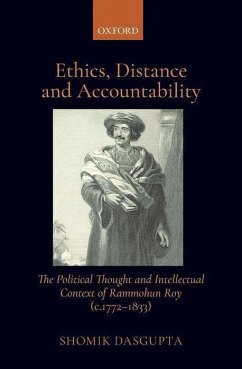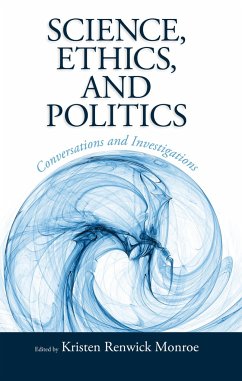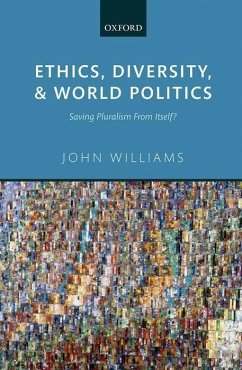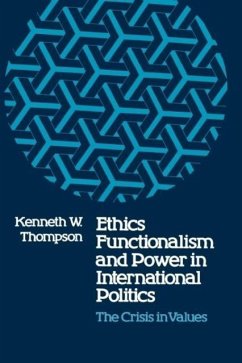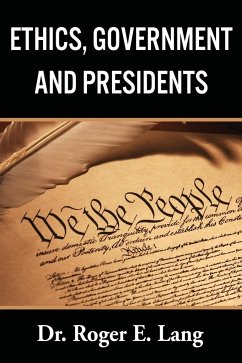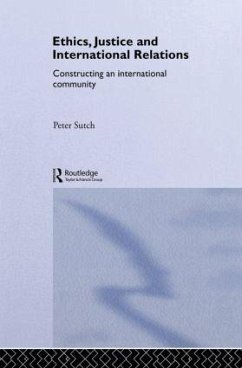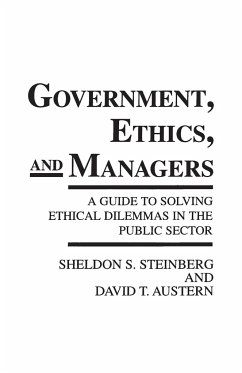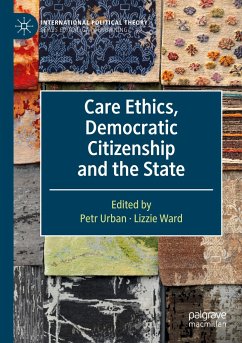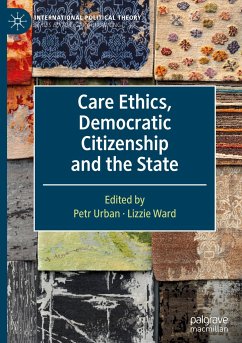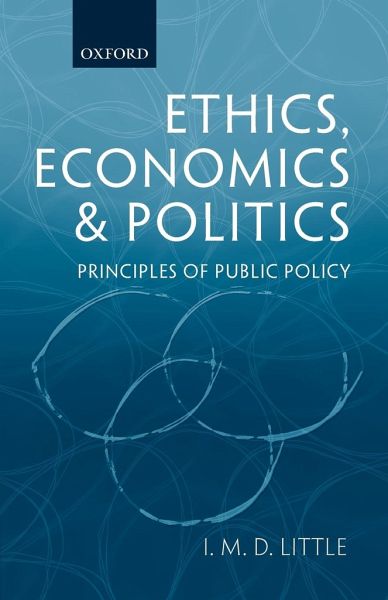
Ethics, Economics and Politics
Principles of Public Policy
Versandkostenfrei!
Versandfertig in 1-2 Wochen
49,99 €
inkl. MwSt.

PAYBACK Punkte
25 °P sammeln!
This book studies the interfaces of ethics, economics, and politics. Public policy issues involve all three of these subjects. Although it may be seen as suggesting the nucleus of a joint university course, the book is accessible to and should interest all those concerned with political decisions. Any such decision needs a criterion for judging whether one action or outcome is better than another. Even a dictator must to some extent be concerned about the economic welfare of the citizens; and a democratic government more so. But how is a person's economic welfare to be judged? Furthermore, any political decision affects the economic welfare of different people differently. How then is the welfare of a community to be judged? This is an ethical question. Underlying any coherent public policy there must be a relevant moral code.
In Ethics, Economics, and Politics Ian Little returns to offer a new defence of a rule-based utilitarianism as a basis for assessing the role of the State. Lucidly and elegantly he explains how the three disciplines of philosophy, economics and politics can be integrated to provide guidance on issues of public policy.



